Nick Mason Becomes Honorary Citizen of Pompeii on the Day He Performs There
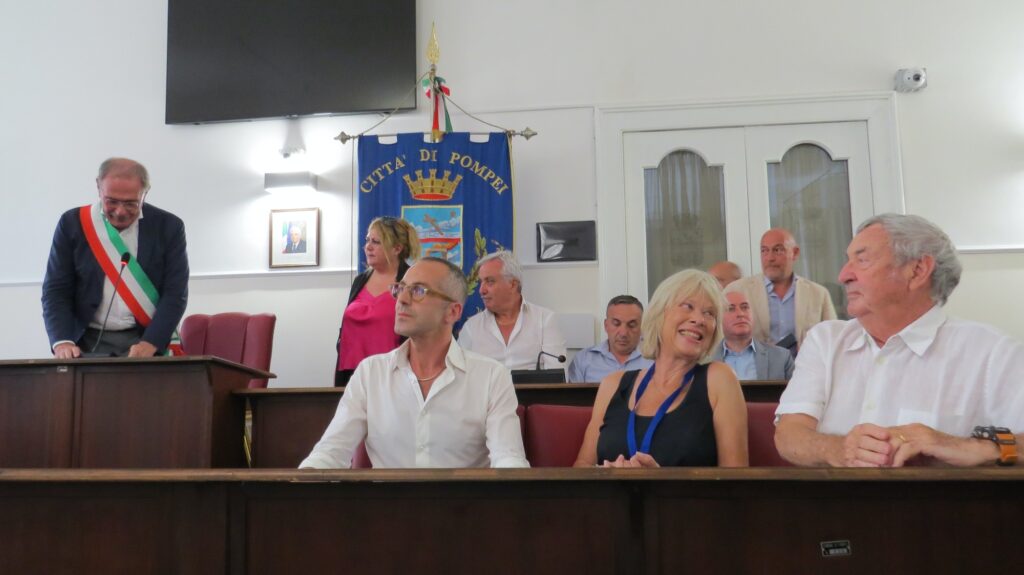
Pink Floyd drummer, Nick Mason, has been awarded the title of honorary citizen of Pompeii in Italy. He received the title today, joined by his wife Annette, at the small ceremony at the City Hall – known locally as the Commune di Pompeii.
Nick Mason is in town with his excellent Saucerful of Secrets band performing at the Teatro Grande in the ancient ruins, this evening.
Pompeii is famous for lots of reasons including the great volcano eruption that preserved a Roman city and was only relatively recently rediscovered. Its also famous for Pink Floyd’s 1972 film Live at Pompeii where they recorded a rather excellent and experimental film of them performing, sharing clips behind the scenes and of recording Dark Side of the Moon. There is a Pink Floyd museum at the amphitheater.
Watch a video of the event : https://www.facebook.com/NickMasonDrums/videos/811550813958130/
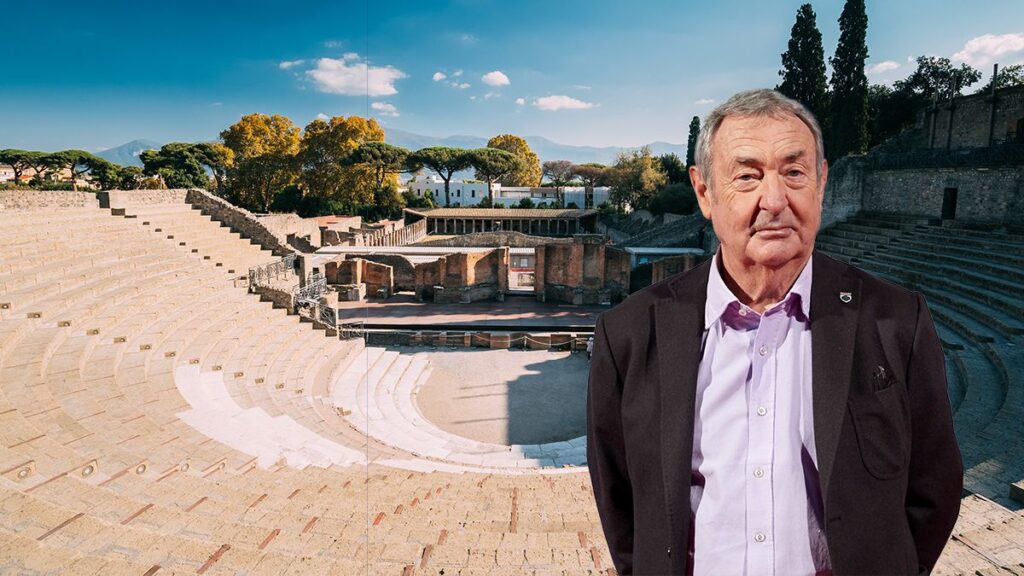


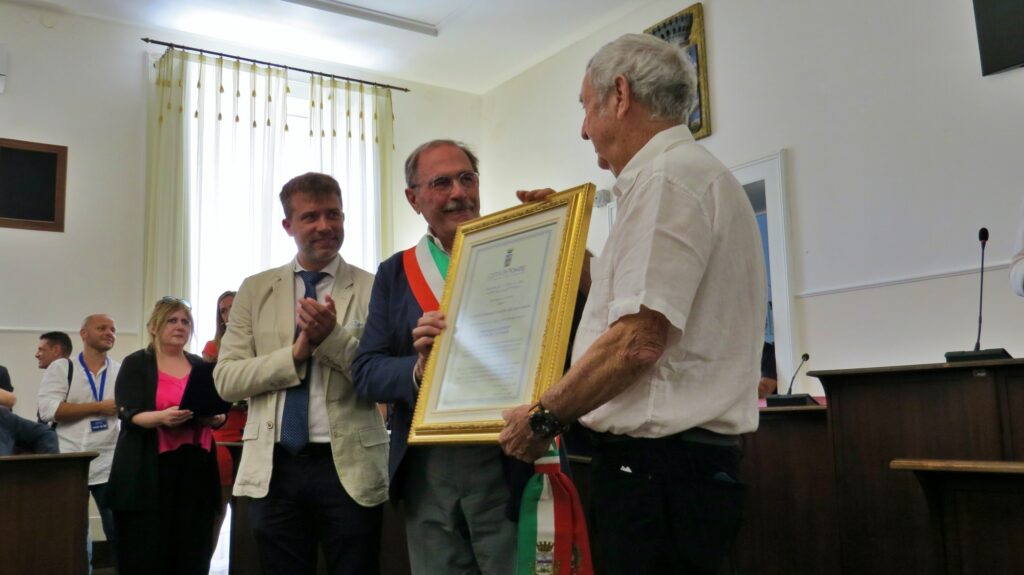
What is Pompeii Famous For?
Pompeii, an ancient Roman city located near modern-day Naples in Italy, is best known for the catastrophic eruption of Mount Vesuvius in 79 AD. This volcanic eruption, one of the deadliest in European history, destroyed the city, killing thousands of its inhabitants and burying Pompeii under several meters of volcanic ash.
The city remained buried and forgotten for centuries until it was rediscovered in 1748. The layer of ash and pumice preserved the city in remarkable detail, providing a unique snapshot of Roman life. Buildings, objects, and even the bodies of people who were unable to escape were all frozen in time, giving archeologists and historians extraordinary insights into the everyday lives of the city’s inhabitants.
Today, Pompeii is one of the most significant and popular archaeological sites in the world. It has been a UNESCO World Heritage site since 1997. The preserved ruins — from homes, temples, and markets to frescoes, mosaics, and the famous plaster casts of victims — attract millions of visitors every year, offering a poignant glimpse into the past. Pompeii’s fame and scientific significance have also made it a cultural reference point in literature, music, cinema, and popular culture in general.
Pink Floyd Museum/Gallery/Exhibition at Pompeii
Given how connected Pink Floyd became to the amphitheater over the past 50 years, there is a museum you can visit at the ancient site. It has displays of photography and information for visitors to be transported back in time to 1971 in October over the 4 days that the band recorded the film. More info about the exhibition.
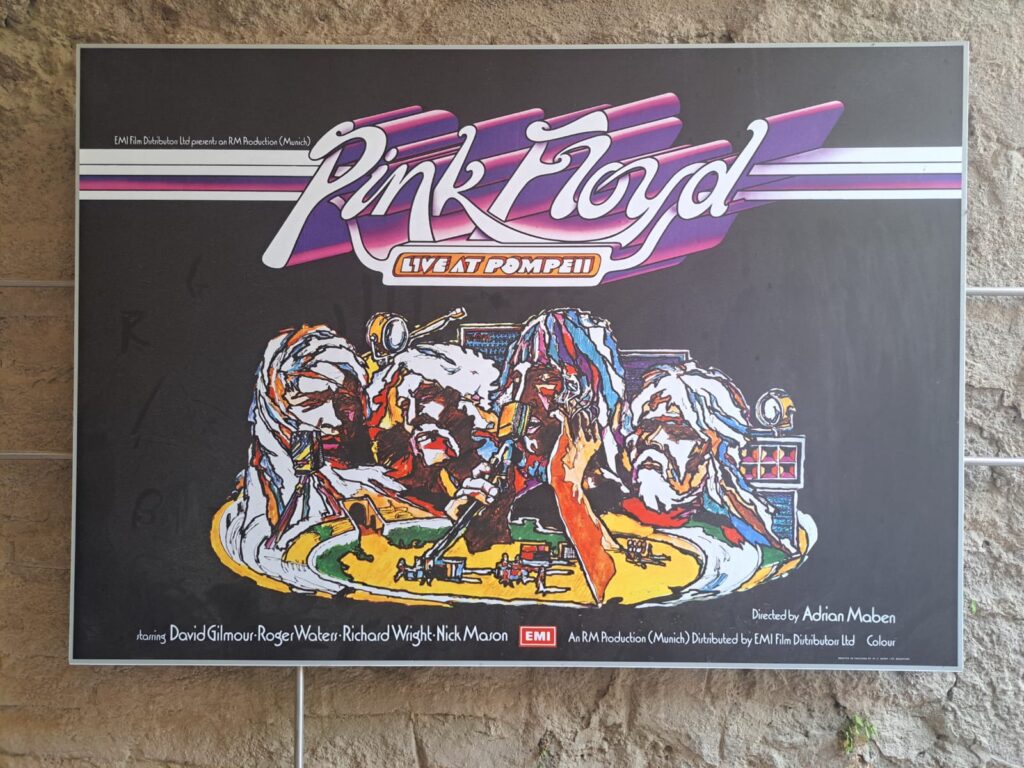
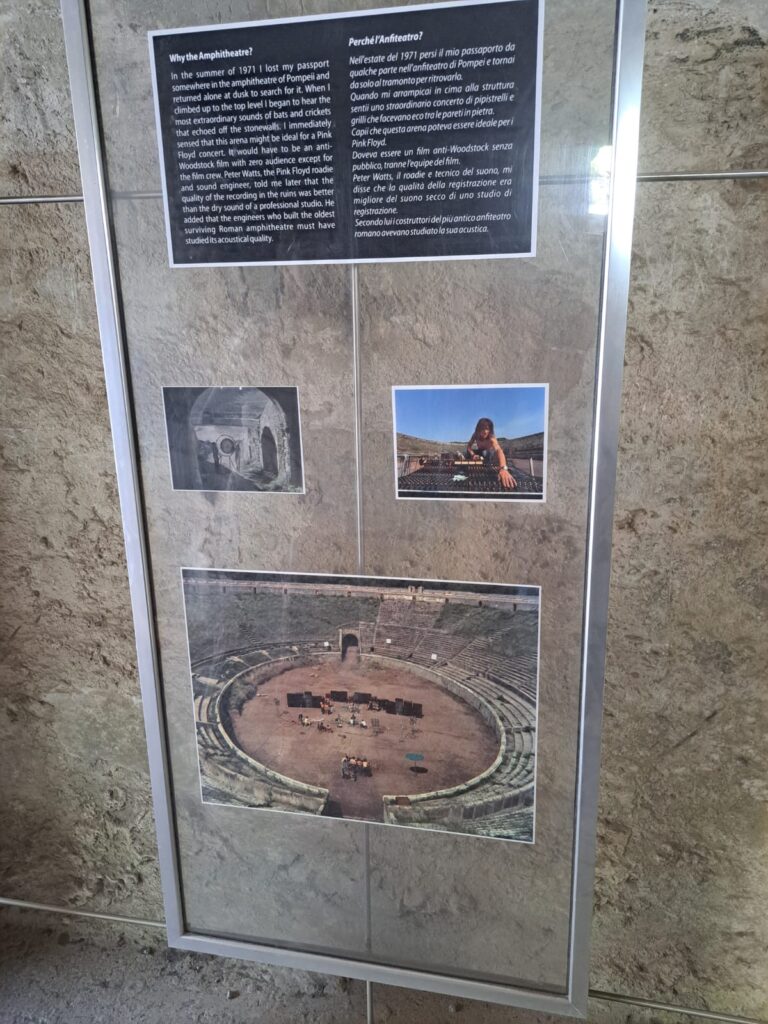
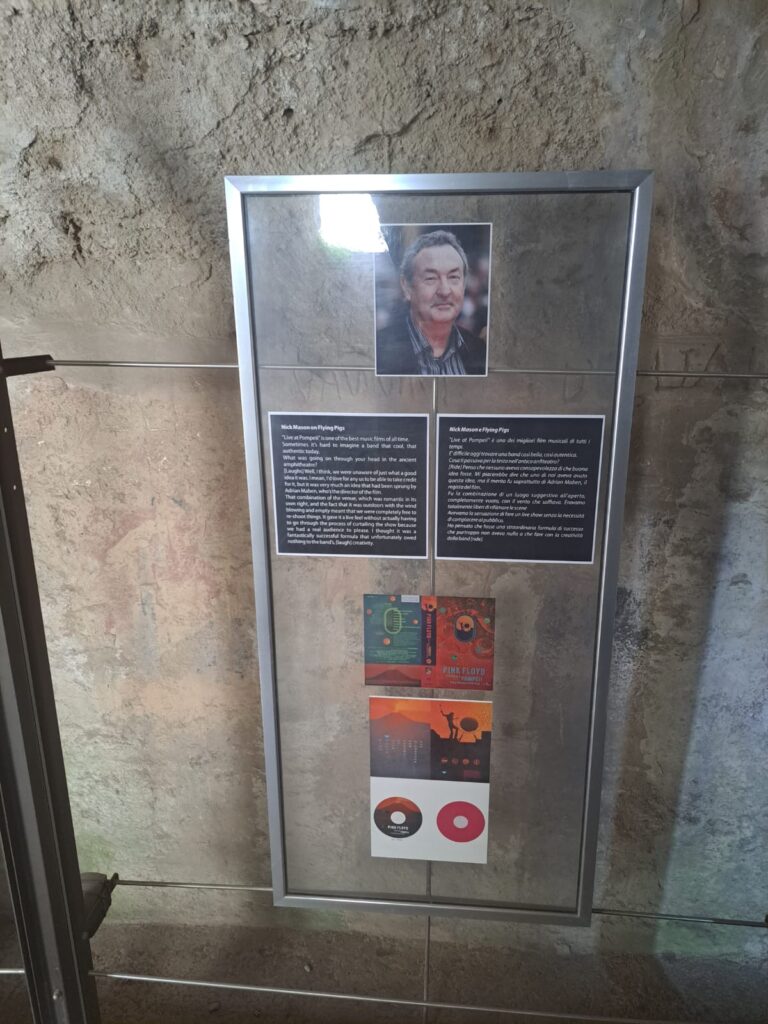
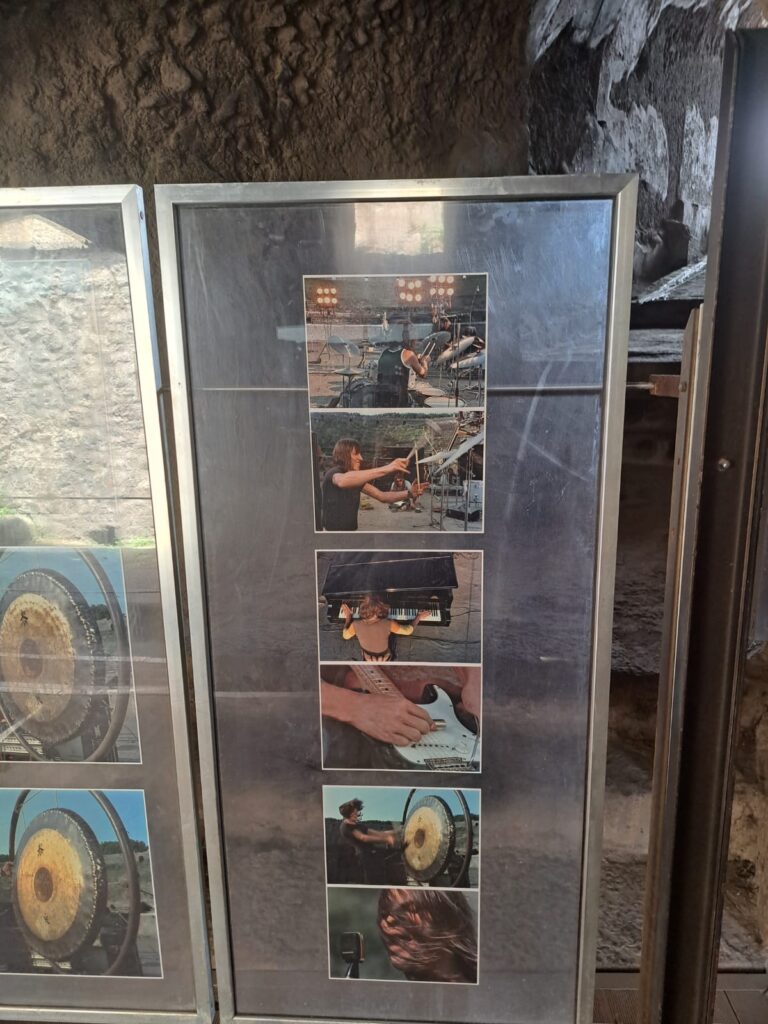
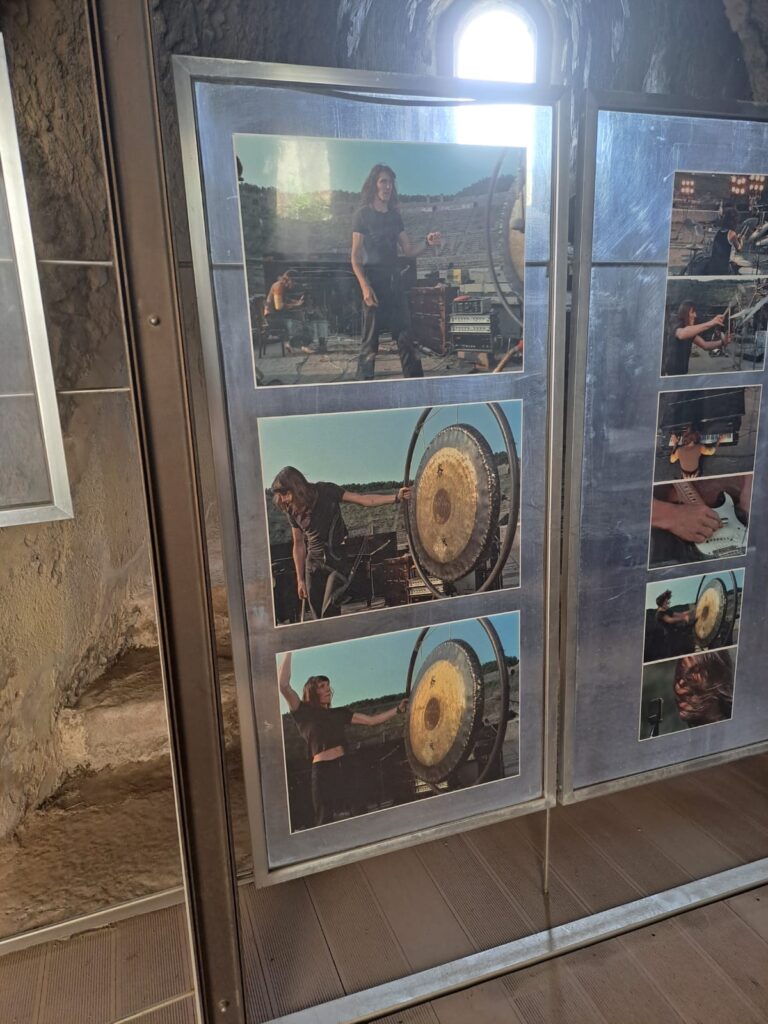
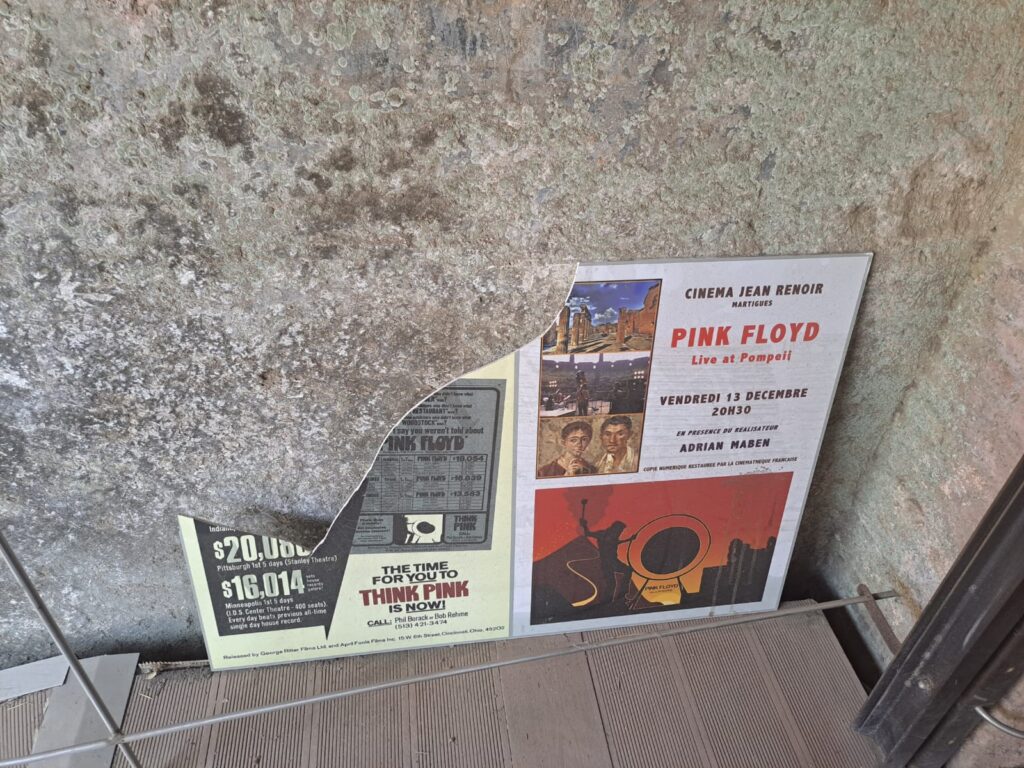
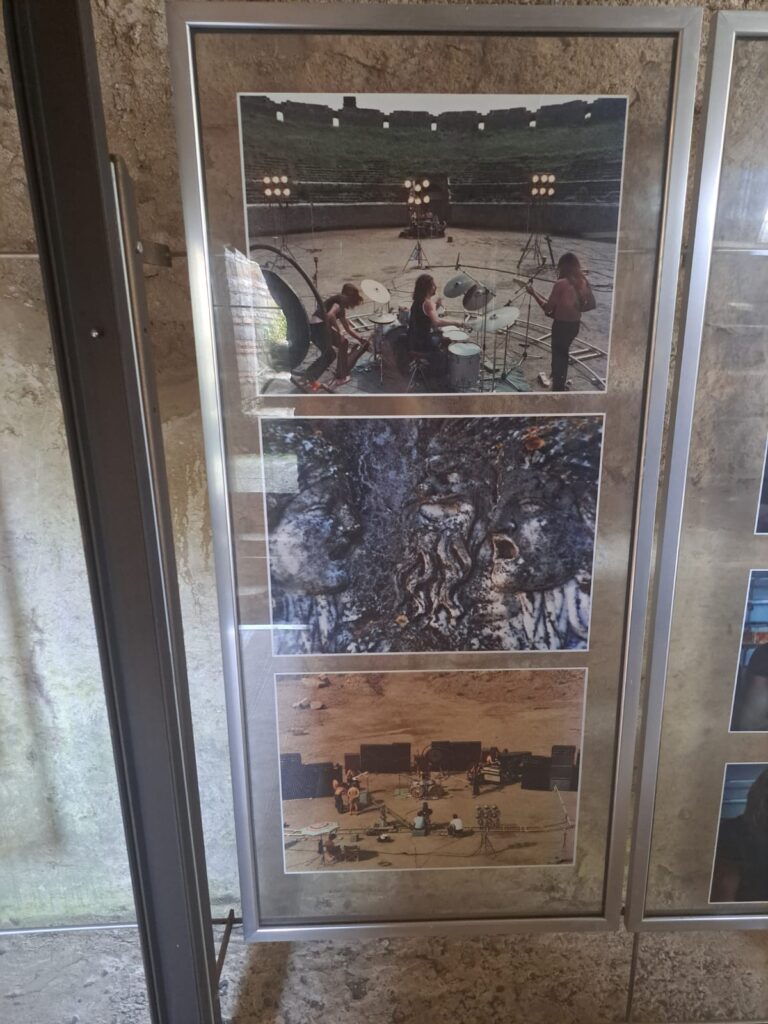
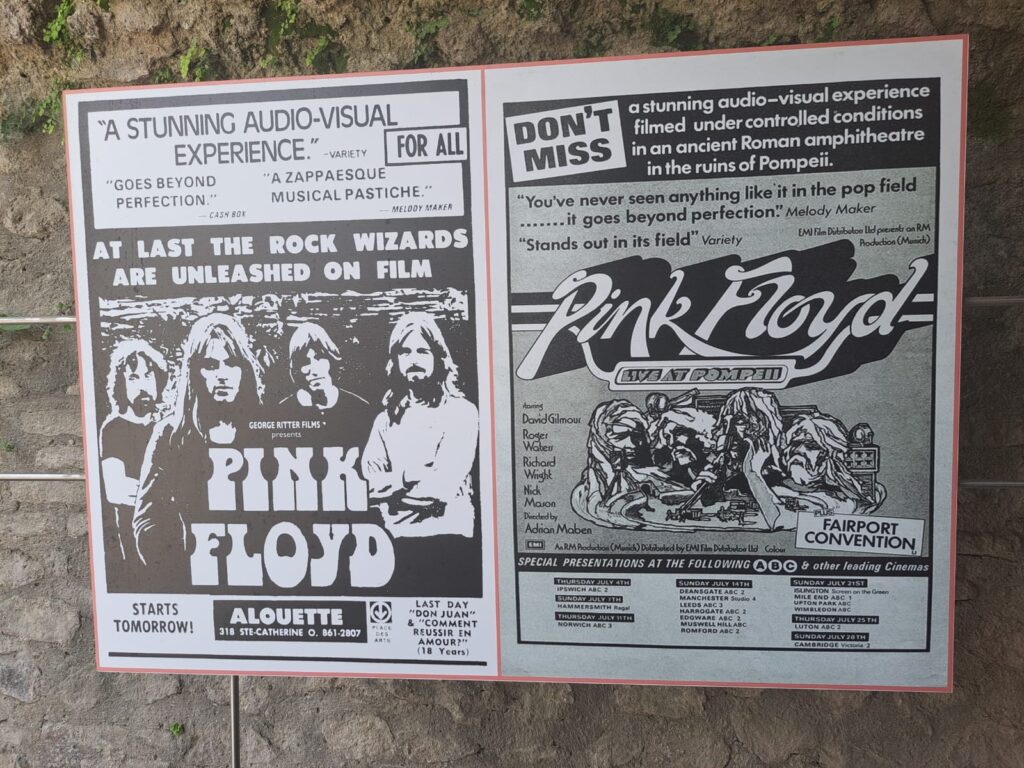
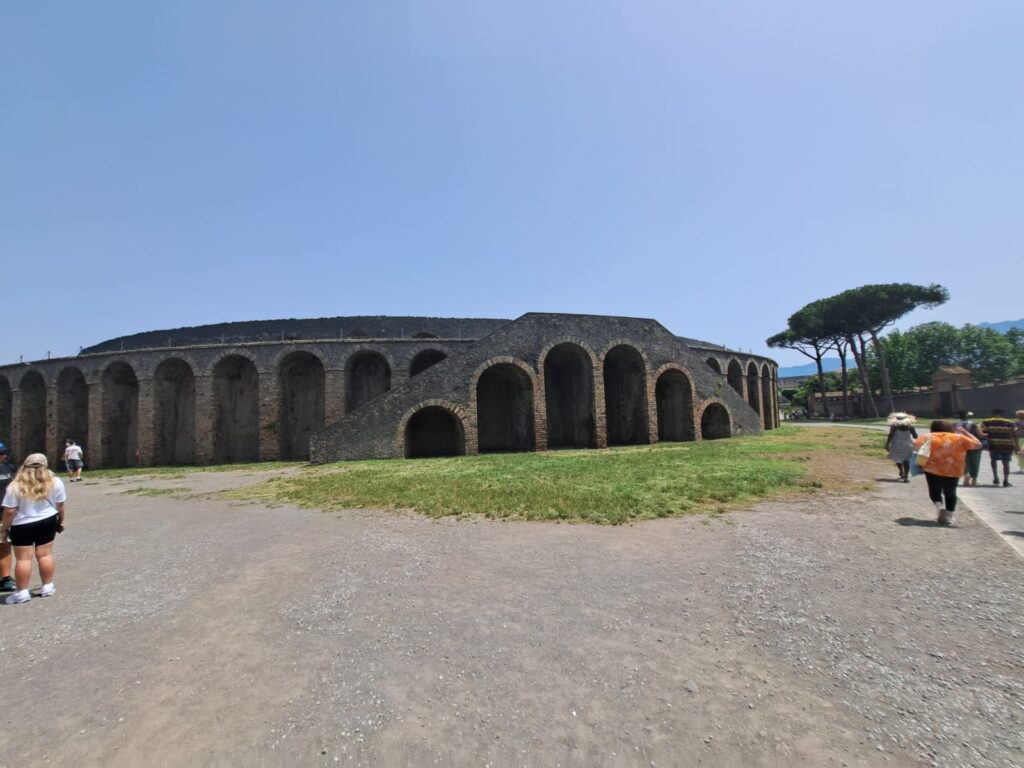
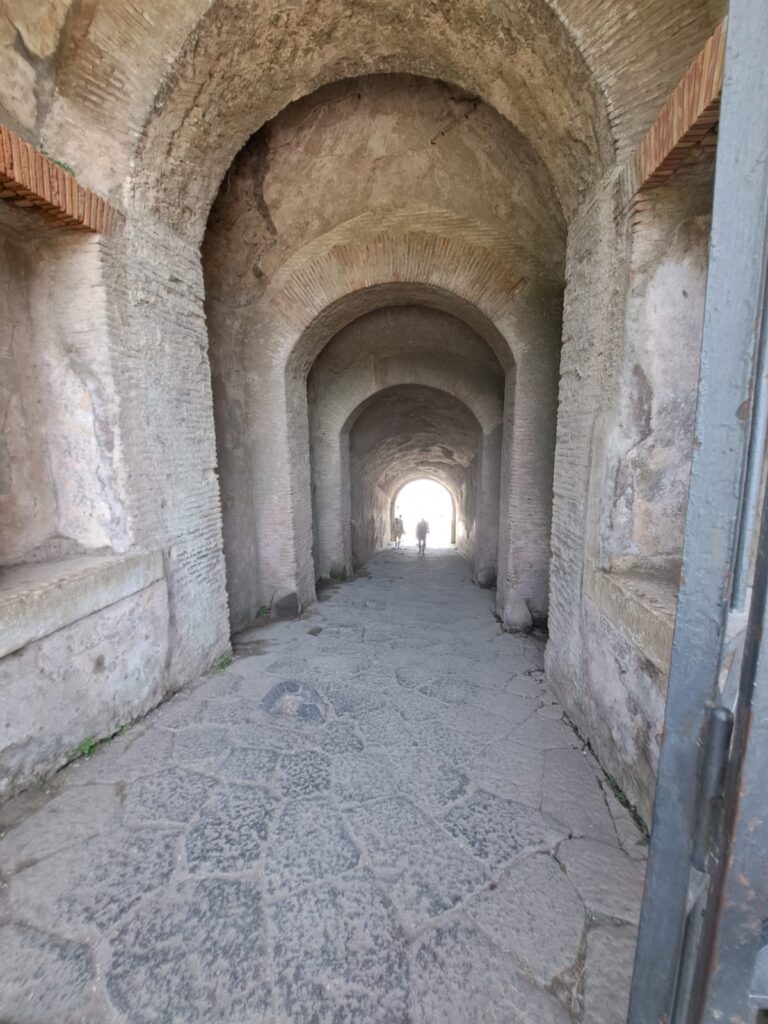
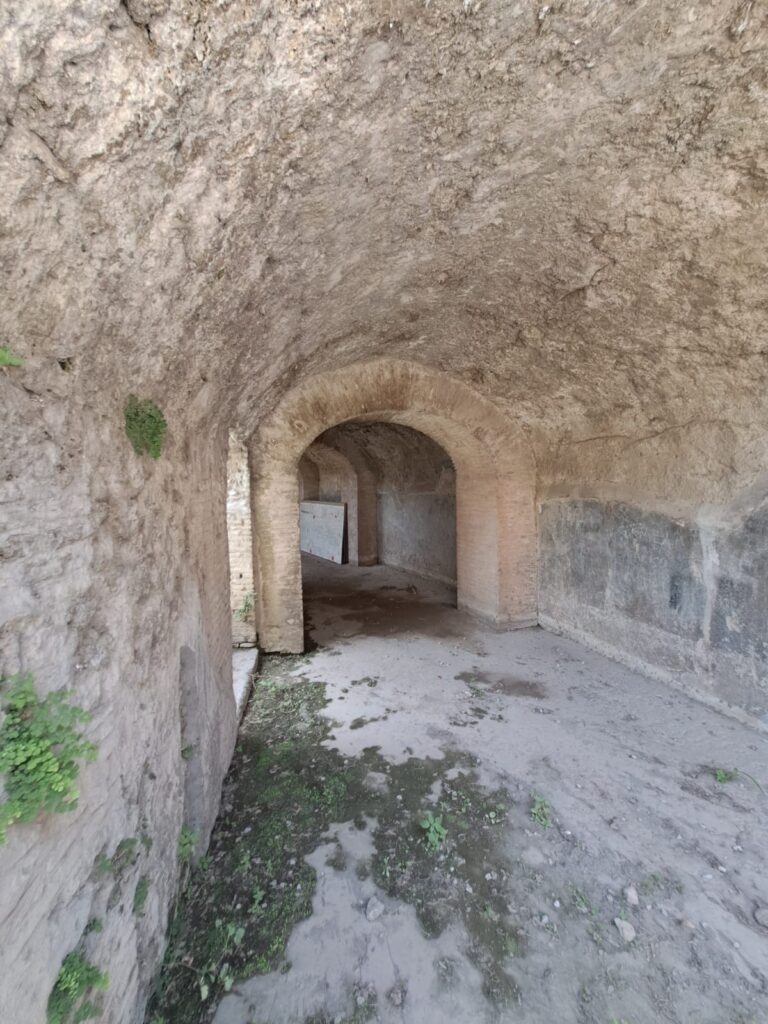
Pink Floyd in Pompeii
When one thinks of legendary music performances, what often comes to mind are roaring audiences filling gigantic stadiums, fervor encapsulated by the magnificence of light shows and audacious props. But for the legendary band Pink Floyd, they had a different idea: a concert performed in the heart of an ancient amphitheater, with only the ghosts of Pompeii as their audience. It was a performance where Nick Mason and David Gilmour, along with Roger Waters and Richard Wright, shattered the confines of conventional music performance and created something of a timeless spectacle.
The year was 1971, and Pink Floyd was on the precipice of a creative breakthrough. After their initial successes with albums like “The Piper at the Gates of Dawn” and “Atom Heart Mother,” they ventured into the ruins of Pompeii’s ancient amphitheater, inspired by the desire to experiment with the haunting ambiance and unique acoustics.
Nick Mason, the band’s drummer and the only member to be featured on every Pink Floyd album, was instrumental in shaping the sonorous experience at Pompeii. His intuitive use of percussion, coupled with the resonance of the ancient amphitheater, created aural waves that have left a lasting impact on the collective psyche of their fan base. He played a key role in constructing the unique soundscapes of the pieces performed in Pompeii, like “Echoes,” “One of These Days,” and “Set The Controls for the Heart of the Sun.”
David Gilmour Live at Pompeii
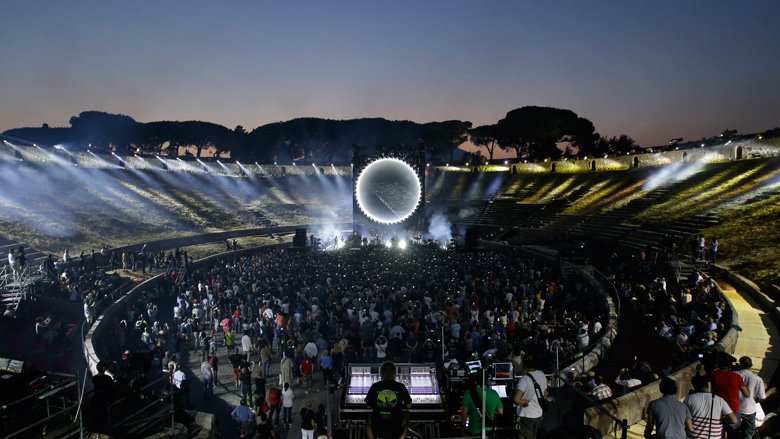
On the other side, David Gilmour, the charismatic guitarist and co-vocalist, delivered a performance that was nothing short of mesmerizing at the site in 2016 – so much so it was released on DVD! His surreal guitar solos echoed against the ancient walls, transcending space and time, creating a juxtaposition between the modern sound and the ancient venue. Gilmour’s iconic guitar work on tracks like “Echoes” remains imprinted in the annals of rock history, capturing the soul of Pink Floyd’s music in its rawest form.
1972 Film: Pink Floyd: Live at Pompeii
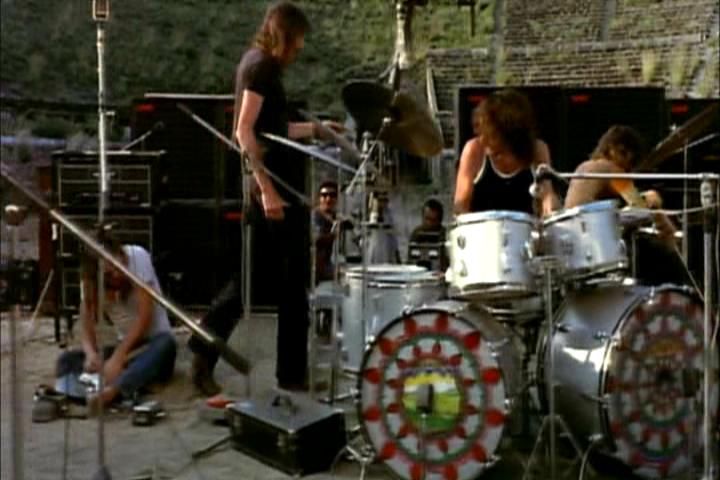
Captured on film by director Adrian Maben as “Pink Floyd: Live at Pompeii,” the performance was a unique blend of art and music. The movie is devoid of any audience, save for the spectral presence of Pompeii’s history, providing an avant-garde visual and auditory experience. The final cut also included studio footage from the recording of their seminal album “The Dark Side of the Moon.”
The Pompeii performance was a testament to Pink Floyd’s courage to experiment, their capacity to envision the unimaginable, and their ability to create an enduring piece of art. It demonstrated their mastery over their craft, encapsulated by the deft musicianship of Mason and Gilmour. It was a testament to a band that refused to be bound by traditional expectations of what a concert should be, painting instead on a canvas as broad and bold as their imagination.
The legacy of the Pompeii performance continues to reverberate through the decades. Pink Floyd’s musical journey ventured from the cosmic tranquility of “Astronomy Domine” to the dark introspection of “The Wall.” But the performance at Pompeii holds a special place in their discography, an echo from the past that continues to resonate within the chambers of rock history.
In the world of rock and roll, there are performances, and then there are moments of transcendence. Pink Floyd’s performance at Pompeii was certainly the latter, a seamless blend of the past and the present, a musical odyssey that mirrored the mystical essence of the location itself. It was a performance that truly embodied the Pink Floyd mantra: fearless, innovative, and timelessly impactful.

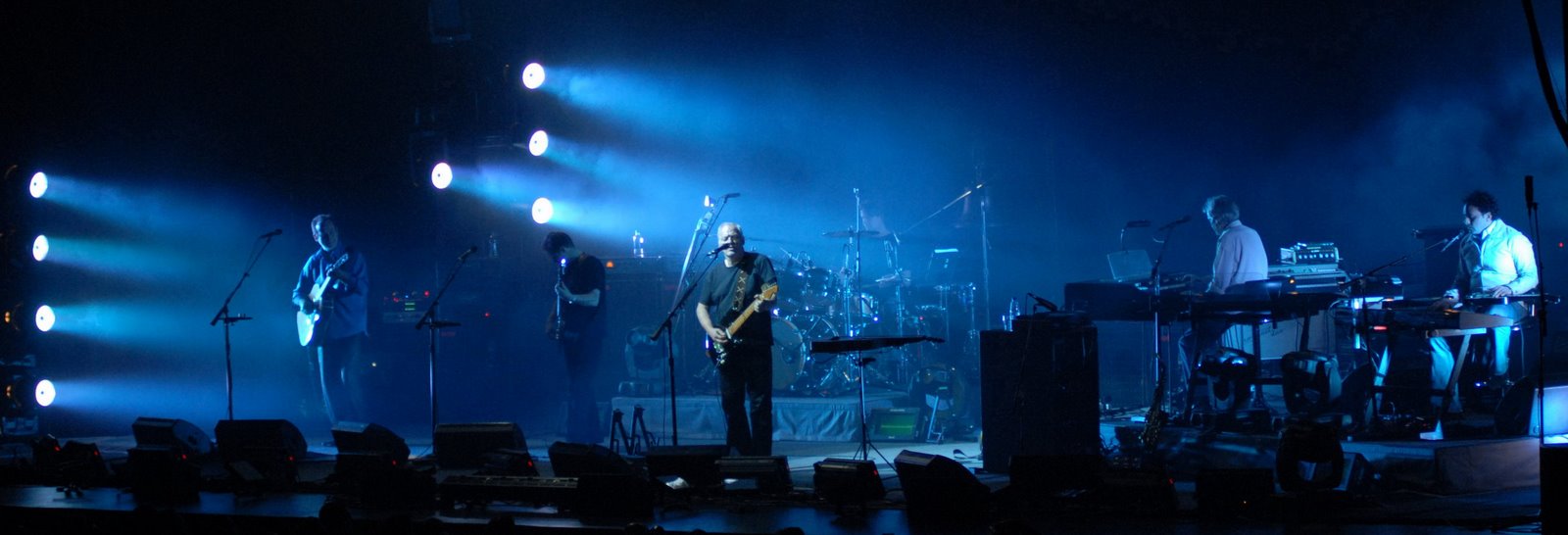
![Roger Waters London Palladium 2023 [Pic: Kate Izor ]](https://www.neptunepinkfloyd.co.uk/wp-content/uploads/2023/10/Roger-Waters-London-Palladium-2023-520x245.jpeg)
